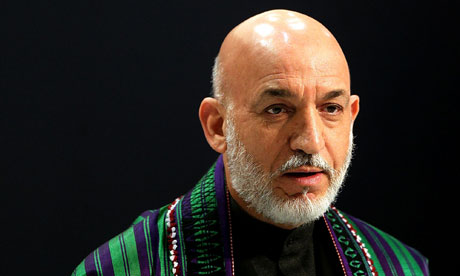Aaron Willschick takes a look at the recent developments in Syria and the problems associated with NATO staying on the sidelines of the conflict.
With an escalation of violence and unrest in the two year old crisis in Syria, NATO is experiencing strong calls for intervention to curb the bloodshed. The situation in the Western Asian country has significantly worsened in recent weeks with reports that claim over 6, 000 people were killed in March, making it the bloodiest month since the crisis began. The death toll estimate includes over 2, 000 civilians, including nearly 300 children which has only intensified the calls for action from the international community. While NATO has often been the first to respond to such humanitarian disasters, it has decided to hold firm in maintaining a peripheral role to the conflict. Commenting on the Alliance’s position on the conflict, NATO Secretary-General Anders Fogh Rasmussen called for a political solution to the Syrian crisis, ruling out the possibility of Western military intervention despite a plea by Syrian opposition leader Moaz Alkhatib for action.

Rasmussen has compared the Syria situation to the 2011 NATO intervention in Libya to justify the Alliance’s non-involvement. Unlike Libya, there is no United Nations mandate for intervention, there is no call on NATO to intervene in Syria and there is no active support from countries in the region. NATO’s position not to intervene has held firm since last year when NATO refused to intervene militarily even as dozens were being killed each day. The only circumstance in which NATO has said it will intervene in the crisis is if member state Turkey is attacked, which Rasmussen publicly stated in February.
As NATO continues to sit on the sidelines of the Syria conflict, its refusal to intervene illustrates the realities of today’s international political and security climate. In recent years, NATO might have become involved in such a crisis, but the evolution of collective defense has now made intervention far from being a certainty. The fact that it will only intervene if Turkey is attacked shows that the Alliance is intent on only becoming involved in security issues that affect its own member states. While NATO was never formally involved in the Iraq War, it provides a prime example of the costs associated with military intervention. The United States spent hundreds of billions of dollars and thousands of lives were lost during the prolonged war. NATO can take away several lessons from Iraq on the costs of intervention which may be contributing to members’ hesitation in getting involved in Syria.
NATO’s reluctance to intervene has been made very clear by Rasmussen in comments he recently made. In regards to the Syrian civil war, Rasmussen stated in February that “NATO cannot act as the world’s policeman. We cannot travel from country to country to solve every conflict. It’s simply not possible.” He went on to affirm that NATO exists to “ensure the territorial defense of (its) member states.” These comments speak volumes about the current state of affairs within NATO and how it is only interested in becoming involved in matters directly affecting its member states.
What is also apparent in NATO’s reluctance to become involved is that shrinking defense budgets are dictating where the Alliance chooses to become engaged. Aside from the human costs of another entanglement, what looms large over the prospect of taking action against Syria is the great financial costs it would entail. The expense of the NATO-led ISAF mission in Afghanistan and the intervention in Libya are still fresh in the minds of policymakers. Several NATO member states are still facing great economic struggles which makes interventions in far off foreign countries fairly low on their list of priorities. In total, NATO spent roughly 2 billion dollars in Libya, which may seem like a large figure, but is modest when compared to the expenses in Iraq and Afghanistan. The two wars cost the United States alone between 500 billion and 1 trillion dollars, both staggering figures that do not even include expenditures from the other Western powers involved. The main players in NATO have been coping with huge expenses for over a decade now which makes the prospect of another military entanglement extremely remote.
Whether it is the right decision or not for NATO to intervene in Syria, the fact remains that as the primary defense organization in the world, it will be called upon to intervene and resolve crises. Iraq, Afghanistan and Libya may be fresh in the minds of NATO decision-makers, but the fact is that there are always going to be security crises that arise somewhere in the world. The primary countries in NATO cannot simply hope to wish the crises of a globalized world into nonexistence. As long as it maintains precedence in world affairs, the United States and NATO will be called upon to resolve crises like those in Libya and Syria. Deciding when and where to intervene is a complicated matter with no clear criteria behind it. How do NATO decision-makers decide what crises to get involved in? Is it primarily the influence of the United States? Or is it a matter of which member-states may be affected or involved? These are significant questions with no obvious answers. As the situation in Syria escalates, it will be interesting to see if, and perhaps how long, NATO remains only an observer.




